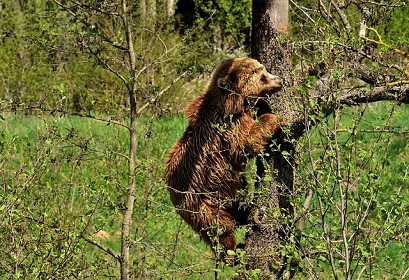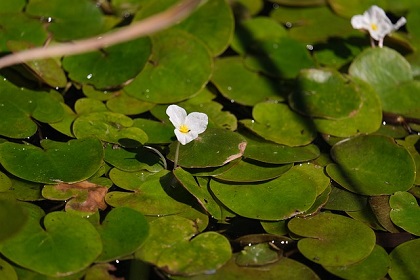News
Stories making wavesThe Law of Nature
MEP'S APPROVE NATURE RESTORATION LAW


Amid right-wing opposition and farmer protests, today (27th February 2024), The European Parliament has given the green-light to the Nature Restoration Law, aimed at rehabilitating at least 20% of the European Union's land and sea areas by 2030 and all degraded ecosystems by 2050.The watered-down law, which comes after weeks of fierce protests from farmers and a last-ditch attempt from rightwing parties threatened to sink the deal, establishes obligations and targets on different habitats from forests, grasslands, peatlands and wetlands to rivers, lakes and coral beds from poor to good by 2030, increasing to 60% by 2040 and 90% by 2050.
Once in a good condition, the EU Parliament states that countries "Shall ensure an area does not significantly deteriorate and Member states will also have to adopt national restoration plans detailing how they intend to achieve these targets."
"To improve biodiversity in agricultural ecosystems, EU countries will have to make progress in two of the following three indicators: the grassland butterfly index; the share of agricultural land with high-diversity landscape features; the stock of organic carbon in cropland mineral soil. Measures to increase the common farmland bird index must also be taken as birds are good indicators of the overall state of biodiversity. As restoring drained peatlands is one of the most cost-effective ways to reduce emissions in the agricultural sector, EU countries must restore at least 30% of drained peatlands by 2030."
The law also demands an improvement in forest ecosystems and the planting of an additional three billion trees. Member states will also have to restore at least 25 000 km of rivers into free-flowing rivers and ensure there is no net loss in the total national area of urban green space and urban tree canopy cover.
Last year, the bill became the target of a fierce opposition campaign particularly by the European People's Party (EPP), who repeatedly claimed it would threaten the livelihoods of European farmers, disrupt long-established supply chains, decrease food production, push prices up for consumers and even wipe out urban areas to make way for green spaces.
Their arguments were strongly contested by left-wing groups, the European Commission, dozens of NGOs, thousands of climate scientists, the renewables industry and big businesses all of whom insisted the goal of restoring nature was compatible with economic activity and essential to ensure the long-term viability of European soils.
"We are relieved that MEPs listened to facts and science, and did not give in to populism and fear-mongering," said WWF, BirdLife Europe, the European Environment Bureau (EEB) and ClientEarth in a joint statement. "Now, we urge member states to follow suit and deliver this much-needed law to bring back nature in Europe."